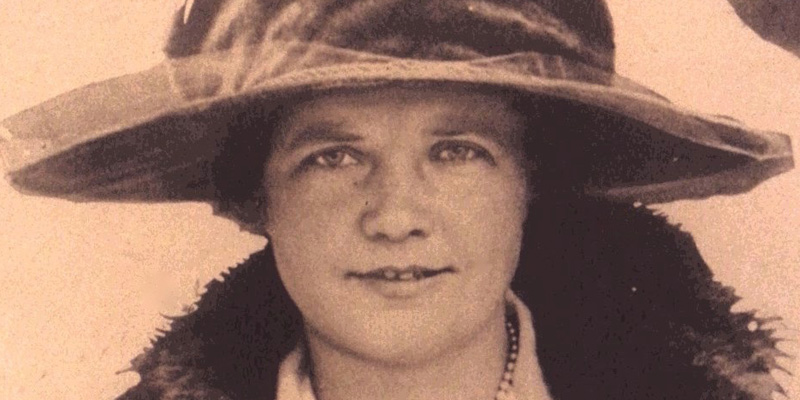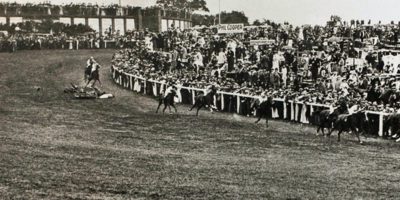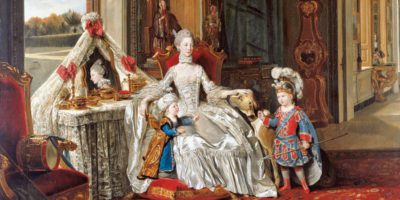Katie Fox is a Programmes Officer at Stonewall Cymru. Katie works closely with clients to understand their businesses and provide tailored advice and support to drive best practice and positively impact their staff. She is responsible for implementing initiatives to create partnerships between clients to support the programme’s continued growth and maximise positive impact on the lives of LGBT people.
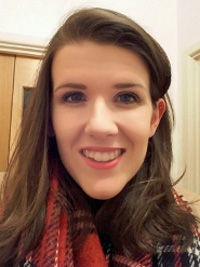
“…As a women’s rights campaigner, Lady Rhondda was instrumental in the establishment of the Newport Women’s Social and Political Union. She took the campaign for womens’ suffrage across South Wales and founded one of the most influential political magazines of her day…”
From casting to campaigning
Prior to working for Stonewall Cymru I worked in extras casting. Film has always been a huge passion of mine and being able to be part of the whirlwind of film production was incredible. However, my time working in the media really opened my eyes to the lack of diversity in front of and behind the camera. It was from this that I became passionate about the need for more diverse representation in our media and in public life generally.
My role at Stonewall Cymru
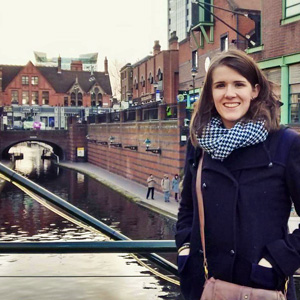
The other element of my role is facilitating our empowerment programmes, these are one-day programmes that aim to empower LGBT people to feel confident in being visible role models in their workplaces and to empower non-LGBT people to be active and visible allies to their LGBT colleagues, friends and family.
Campaign priorities
At the moment trans and non-binary people are facing huge levels of abuse and discrimination, in all areas of their lives, simply for being themselves. Our current Come Out For Trans Equality campaign aims to engage trans allies, to get them to call out discrimination and transphobia when they see it and to be vocal and visible proponents for trans equality if they feel safe to do so.
The Government have also announced they will be reviewing the outdated Gender Recognition Act this year. As part of that they’ll be a launching a public consultation where people can have their say on how the reformed legislation will look. It’s an amazing opportunity to really push for some important rights for trans people, like self-identification and removing the spousal veto, so we’re working hard to raise awareness around that.
Our other campaigning priorities are: inclusive healthcare, hate crime and empowering schools to tackle homophobic, biphobic and transphobic bullying.
To read more about our current campaigns go to: http://www.stonewallcymru.org.uk/get-involved/stonewall-cymru-campaigns
Celebrating Lady Rhondda
One of the women from history that I admire is Lady Rhondda (Margaret Mackworth). She was a Welsh peeress, businesswoman, and active suffragette. My partner is a composer and workshop leader and a couple of years ago she was working on a project with a Welsh animation company and several schools in South Wales to explore the life and work of Lady Rhondda.
The short film they made was so powerful and put across what an influential businesswoman and activist she was within Wales and across the UK, from there I wanted to know everything I could about this woman.
Lady Rhondda’s greatest achievements
Throughout her professional life Lady Rhondda was the director of thirty-three companies, having inherited twenty-eight directorships from her father. Being one of the very small number of female company directors in the early 20th century Lady Rhondda was very passionate about increasing the number of women in the corporate world. In response to this Lady Rhondda was involved in creating and chairing the Efficiency Club, a networking organisation for British businesswomen.
As a women’s rights campaigner, Lady Rhondda was instrumental in the establishment of the Newport Women’s Social and Political Union. She took the campaign for womens’ suffrage across South Wales and founded one of the most influential political magazines of her day.
LGBT role model
As with so many historical LGBT figures, Lady Rhondda was not publicly out or vocal about her sexual orientation during her own lifetime. However, for me as a gay woman in the 21st century being able to read about a woman from history who lived in Wales who had relationships with women, was an incredibly successful businesswoman and a political activist at the same time is incredibly empowering.
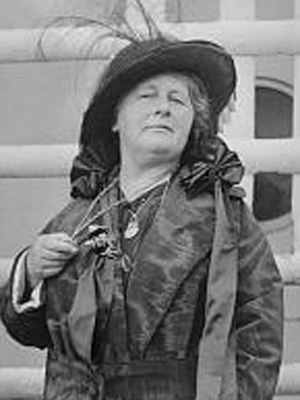
However, Lady Rhondda does also raise for me many questions about privilege and the lack of diversity we still have in terms of people in positions of power in public life. So much of Lady Rhondda’s power and influence was a direct result of coming from a very wealthy and already politically engaged family.
Women are still underrepresented in most areas of business but when we add intersectionality in to this the situation becomes even worse, with BAME women making up only 0.7% of the most powerful and influential people in the UK. We’ve come a long way in the past 100 years since some women gained the right to vote but we still have a long way to go until we see equal representation across all areas of public and corporate life.
Influence on the peerage system in the UK
After the death of her father, Lady Rhondda tried to take his seat in the House of Lords. In her case for taking her father’s seat she cited the Sex Disqualification (Removal) Act 1919, which stated that a person should not be “disqualified by sex or marriage from the exercise of any public function, or from being appointed to or holding any civil or judicial office or post”. However, the Committee of Privileges still voted strongly against her request.
The case Lady Rhondda put forward began a larger debate but unfortunately the legislation around women being allowed to sit in the House of Lords was not altered until 1958, a month after her death.
Coming up next
A large area of focus for me at the moment is around our work with service providers, ensuring that LGBT service users receive the same treatment as any other group when accessing vital public services, such as healthcare. In April we will be delivering our first ever Inclusive Service Delivery programme in Wales which aims to give people in frontline roles the tools and information they need to provide the best services possible to LGBT service users, so I’m looking forward to that.
http://www.stonewallcymru.org.uk/
https://twitter.com/stonewallcymru
https://www.facebook.com/stonewallcymru
Main Lady Rhondda image credit: By Photographer is unknown, but photo is known to be out of copyright. The original is held by A. V. Morgan, who has given permission for its use by Wiki Commons. (A. V. Morgan on Twitter) [CC BY-SA 4.0 (https://creativecommons.org/licenses/by-sa/4.0)], via Wikimedia Commons
Second Lady Rhondda image credit: By Library of Congress [Public domain], via Wikimedia Commons

